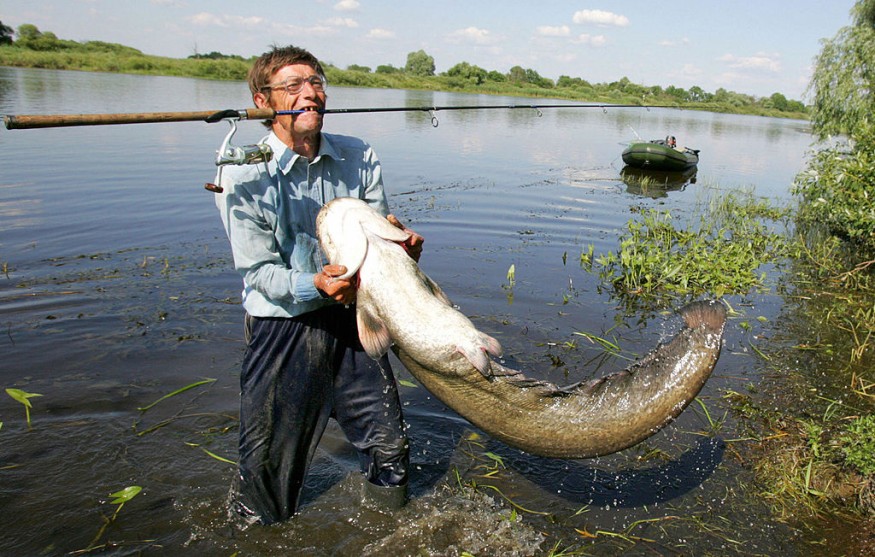
Indiana fisherman caught a monster catfish in the St Joseph River, a tributary of Lake Michigan, breaking Michigan's state record.
Lloyd Tanner, angler from Hobart, Indiana, was fishing along the river when he reeled in the 53.35 pounds, 48 inches long flathead catfish, Newsweek reported. The winning catch follows 2014 Michigan state record-holder Dale Blakley, of Niles, who had caught a 52-pound, 46.02-inch-long fish out of Barron Lake in Cass County.
To qualify for Michigan's state-record fish, the Michigan Department of Natural Resources (DNR) recognizes the fish by weight and that it must exceed the current listed state record weight. Both its species and weight have to be verified by a DNR fisheries biologist. Moreover, all potential state record fish must be weighed on commercial scales, such as in grocery store, meat market, etc.
Jay Wesley, Lake Michigan Basin coordinator with the Michigan Department of Natural Resources verified Tanner's fish.
Michigan Catfish Anglers Trail Club
Tanner joins friends in an amateur fishing club called the Michigan Catfish Anglers Trail every week to fish in the St. Joe River. "I've been fishing in Michigan for almost 30 years. What draws me to Michigan is fishing for big catfish," he told the DNR.
"We have several fun tournaments that anyone who enjoys fishing for catfish can come out and fish."
Speaking of Michigan state record, a world record weight was also recorded in 1982 in a behemoth pulled from the Arizona river, tipping the scale at a gargantuan 139 pounds 14 oz.
New State-Record Fish
Flathead catfish (Pylodictis olivaris) also known as mud catfish are caught mostly on live bait fish and at some times, cut or prepared baits, according to DNR. They "can reach Michigan record weights of 50+ pounds."
Unlike other catfishes, flatheads feed only on live prey, largely on crayfish in the Flint River system. They can be found in large rivers, streams, or lakes in the lower Great Lakes and Mississippi River basin, usually over hard bottoms. They also prefer to swim in "deep, sluggish pools, with logs and other submerged debris that can be used as cover. Young flathead catfish live in rocky or sandy runs in the river and in rifles, often under stones on rifles," DNR described.
Thanks to their size and state, they have become very popular sports fish in many states and have easily adapted to their new habitats, including to parts of Washington, Oregon, California, Arizona, New Mexico, Wyoming, Colorado, Georgia, South Carolina, North Carolina, Virginia, and Pennsylvania, Newsweek enumerates.
To recap, if you want to know if your fish broke a record in the state of Michigan, your fish must exceed the current listed state-record weight of which the identification of the fish must be verified by a DNR fisheries biologist. You can find information on how to contact them here.
Lastly, the weight recorded in a commercial scale must be recorded using the business name where the scale is located, and attach a weight slip if you can.
Related article : An Alarming Number of Dead Dolphins Are Washing Up on Black Sea Due to Russian War
© 2025 NatureWorldNews.com All rights reserved. Do not reproduce without permission.





